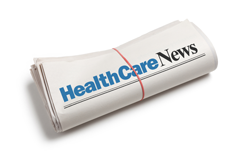 The U.S. is in the midst of a healthcare bubble that will put the housing bubble to shame. Here's an explanation.
The U.S. is in the midst of a healthcare bubble that will put the housing bubble to shame. Here's an explanation.
What we get from our employers is called health ‘insurance,’ but it is anything but that. Insurance is defined as “the equitable transfer of the risk of a loss from one entity to another, in exchange for a premium.” Yet health insurance pays for everything from routine doctors visits to prescriptions. This is not a transfer of risk in exchange for paying a premium; it is a third party buying your healthcare so you don’t have to pay taxes on it.
While this allows healthcare consumers to purchase their healthcare tax free, it has the unintended consequence of stripping price signals from the patient’s decision-making process. This turns health insurance into the equivalent of an all-you-can-eat buffet where consumers gorge themselves with no consideration of cost. When was the last time you selected a doctor based on price? What about a prescription drug? Do you even know what the real prices of these things are?
The bubble is blown like this: Our tax structure creates the incentive for people to get as much of their healthcare through employer-provided benefits; with people getting as much of their healthcare through employer-provided benefits, consumers do not price shop their healthcare services; with consumers not price shopping their healthcare services, there is no sensitivity to rising prices; with no sensitivity to rising prices, prices spiral out of control; with prices spiraling out of control, a system is created that is completely artificial, exorbitantly expensive, and not built on market forces.
This is a bubble.
Like any other industry, the healthcare industry is tied to the health of the overall economy and when their services become even more unaffordable for vast portions of the population, such as in the next recession, the industry will experience some form of a collapse. During the U.S. housing bubble, when housing prices hit $500,000 in neighborhoods with $40,000/yr average incomes, the bubble popped and housing prices dropped to more affordable and realistic levels; the same will happen to the US healthcare industry as it’s forced back into line with the rest of the economy. The popping of the healthcare bubble will cause all levels of the U.S. healthcare industry to downsize in the form of layoffs, salary cuts, hospital and medical office closures.
By enrolling with a direct primary care practice YOU can help save the system. Is direct primary care right for you?

